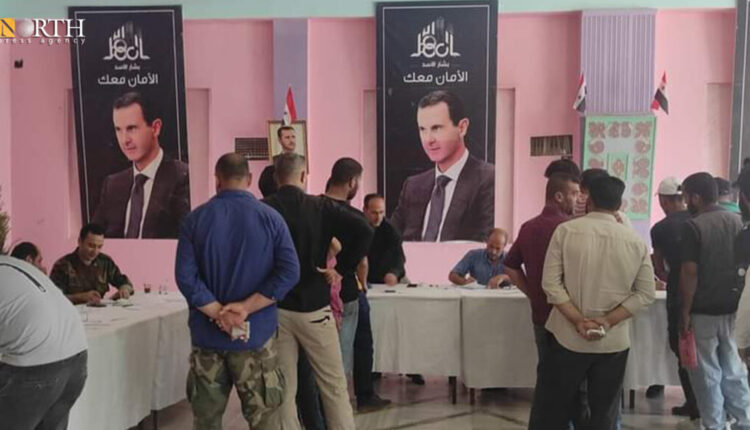DARAA, Syria (North Press) – Mahmoud does even consider going to the settlement center because he already knows that the Syrian government forces’ promises are empty.
Mahmoud al-Omari (pseudonym), 42, a former member of the opposition in Daraa, said: “The first settlement in July 2018 included promises of supervision by Russian forces, most notably releasing of prisoners, stopping arrests and prosecution, but it did not happen.”
Al-Omari made three settlements since the government forces entered Daraa in 2018, and so far, they were useless. His name has not been crossed from the wanted list to this day, he said.
Therefore, he considers the new settlement like the rest that had “false” promises but became annual “for unknown reasons until now,” so he decided not to head to the center.
On May 16, the government called on a number of wanted people in Daraa to subject to the settlement or they will be deported.
It was the fifth settlement imposed on the people of Daraa. The last one was on April 20, 2022, and the first and the biggest one was in September 2018.
In July 2018, the opposition armed factions and the government forces reached a ceasefire agreement mediated by Russia in the opposition-held areas in Daraa. Under the deal, the opposition armed factions agreed to hand over their weapons in exchange for staying in Daraa, and those who opposed the agreement they were sent to Idlib, which is under the control of Hayat Tahrir al-Sham (HTS – formerly al-Nusra Front).
Over 50 percent of young men from Daraa Governorate in southern Syria boycotted the settlement recently announced by government forces because they do not trust their “false” promises.
Abdulaziz Muteri (pseudonym), 29, a young man from Daraa, went to the settlement center in the al-Horiyat Palace to do the procedures of the settlement to obtain a passport later to leave the country.
However al-Muteri was treated badly by members of a military group affiliated with the Security Branch led by the so-called Mustafa al-Musalma, aka al-Kasem, in front of the settlement center and was threatened to be arrested if he did not pay them money.
He paid 100,000 Syrian Pounds (SYP, equals about $11) to stop their threats and enter the center without waiting in line as the number of young men waiting in front of the center exceeded 250.
It did not stop there. Al-Muteri experienced an even worse treatment inside the center by members of government forces. They used abusive language with the young men, as they considered everyone who did the settlement as “terrorists” and came because they felt guilty, whereas most of the young men came with the aim of gaining a passport. If it was not for this, no one would have come.
Farouq al-Sabsi (pseudonym), 33, a defected member of government forces in the western countryside of Daraa, told North Press he was prompted not to go to the settlement center because of the decision about defected members to turn themselves in after one month.
“The situation of the defected members is the most difficult since the settlement in 2018 and the control of government forces because their fate is still unknown. That is why we do not intend to turn ourselves in whatever the outcomes in the future,” he added.
Al-Sabsi stressed that the settlement for the defected members of government forces is useless because, after one month of doing the procedures, they will be back on the wanted lists again. He has no intention to go back to serve in the military.
Some of the defected members surrendered after government forces entered Daraa Governorate, “but they were executed, and their bodies were handed over to their relatives, despite promises to not investigate and return them to military service once again without questioning,” he noted.
This is the fifth settlement launched by the government in Daraa Governorate. It started on May 19 in the eastern countryside of Daraa, and it is still ongoing.
A former member of the central committee in Daraa, who preferred not to say his name, told North Press that the settlements announced by the government forces from time to time “are to stall the implementation of the first settlement’s terms that we reached with officers of the government forces under Russian auspices in 2018.”
The most notable terms were to release detainees, stop the rule of security forces, not detain holders of settlement cards, and allow government employees to return to their jobs after suspension. “But to this moment and after almost five years of the settlement, no terms have been implemented,” he concluded.

